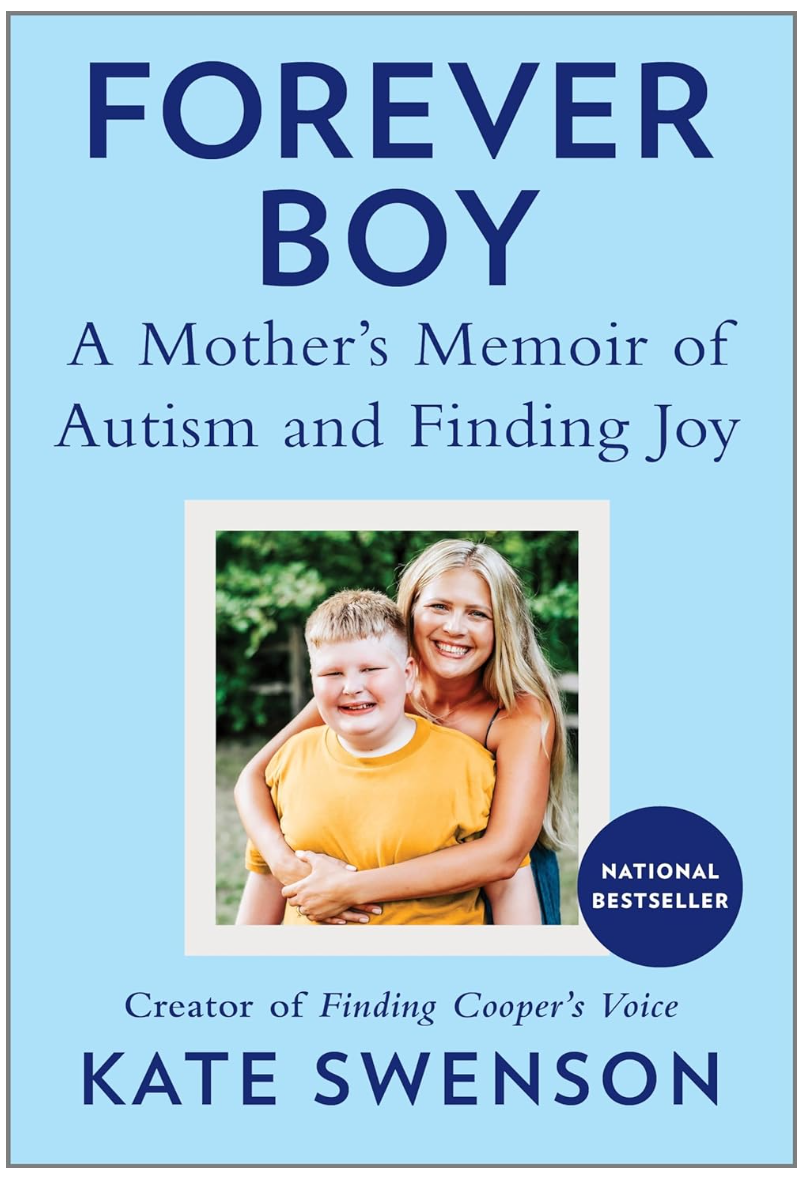The Aftermath of an Autism Dignosis
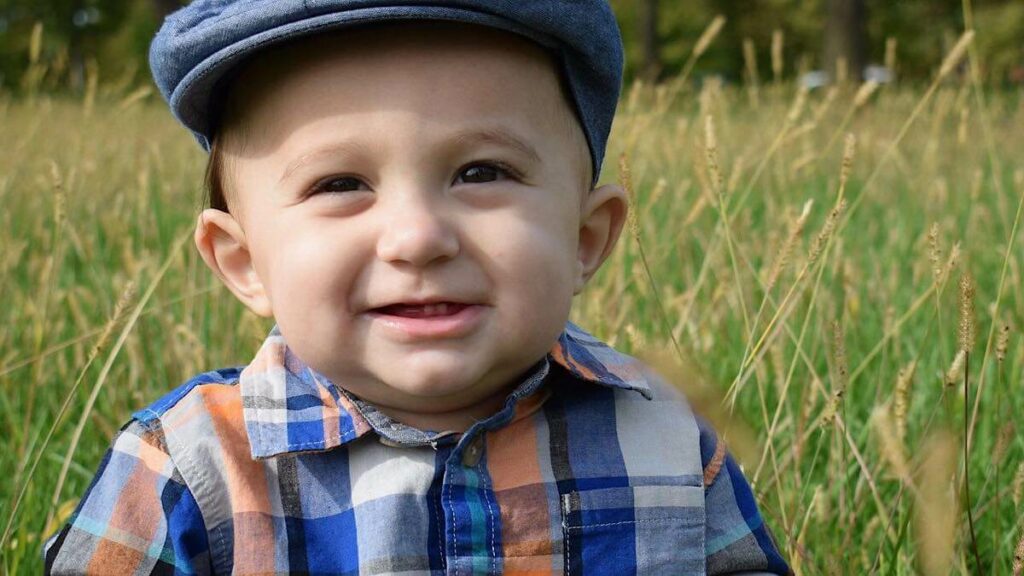
“Mommy, wake up. I love you,” I hear Rhys’s raspy little voice say into the darkness as he holds my face in his hands.
It’s before 6am and that champagne from last night is now wreaking havoc on my head. But I open my eyes and pop up to greet Rhys, fueled by this new milestone we’ve reached: saying “I love you.” Both proactively and in the appropriate context.
Sure, as parents we all get melty when our children say “I love you.” But when Rhys says it, it’s magic.
You see, my youngest son Rhys (pronounced “Reese,” as in Witherspoon) has autism spectrum disorder (ASD). Verbally expressing an emotion without being prompted is a big deal for him.
So big, it can pull me out of bed on a Saturday morning with a smile on my face and a song in my heart. In these moments, I often reflect on how far he’s come and, honestly, how far I’ve come since Rhys’s diagnosis.
While it’s difficult to write, my candor and shortcomings just might bring solace to another family processing their own autism diagnosis. And that’s all this is – an honest account of my own experience.
No advice to offer here, just a fellow autism parent welcoming you to a group that you never wanted to be a part of.
I had some very dark and shameful thoughts.
Autism was on my mind even before Rhys was born. I didn’t always want to be a mom. When I came around to having children, one of my greatest fears was having one with special needs. I wasn’t confident in my ability to properly parent a “normal” child, let alone one that needed an elevated level of care.
As autism became more mainstream and I learned more about its symptoms, I decided having an autistic child must be the worst life sentence a parent can receive. Not only might your child need constant care, but they may never speak or show affection.
Once my older son, Aidan, was born healthy and neurotypical, my autism fears subsided. Then, when Rhys was born without any obvious medical issues, I was able to dive into motherhood without a looming fear that we’d be anything but a “normal” family.
At 18-months, Rhys’s pediatrician noticed some delays, so he began speech, occupational and developmental therapy. I was confident we’d “therapy” our way back on track, yet I agreed to a medical evaluation.
In my mind, it was just a formality to rule out autism, ADHD, and other potential disorders. I told my husband he didn’t need to come with us to the appointment, so I took Rhys on my own.
Denial runs deep.
That March day changed our lives forever. In just 90 minutes a team of specialists were able to diagnose my baby with ASD. I was speechless when the doctor told me. I cried on the drive home. I spent the rest of the day buried under the covers, desperately wishing it wasn’t true.
Why him? Why us? I felt targeted and violated. I suddenly hated all my friends who had neurotypical kids. It wasn’t fair and I wasn’t interested in being part of this infringement on the life I had planned.
I mourned the family I thought I was going to have.
Whether your autistic child is “high functioning,” “non-verbal,” “severe,” or whatever label you subscribe to, your dreams of raising a doctor who discovers the cure for cancer shift to a meager hope for a quality life.
I started watching TED Talks and YouTube videos featuring autistic adults who were thriving, and it made my stomach churn.
Sure, this successful public speaker seemed happy, but did he ever get a date to a school dance?
Did she endure a lonely and depressing childhood in exchange for the stories in this best-selling book?
How low had the bar become for Rhys?
Maybe he’ll learn to make eye contact and hold my hand. Maybe he’ll be able to get a haircut without having a meltdown. Maybe he’ll be able to hold a steady job and support himself as an adult. Maybe we’ll have a conversation one day…
Suddenly all the wonderful things I’d taken for granted with Aidan became the things we were crossing our fingers for with Rhys.
And this notion of a spectrum drove me bananas. Every person with autism holds an individual space on that spectrum, so there’s no real way to predict how the disorder will present throughout their life. How can I adjust my aspirations with such limited insight into his future?
The uncertainty was cruel.
Rhys continued to be the same loveable superhero he was before we knew he had autism, and he snapped me out of my self-pity.
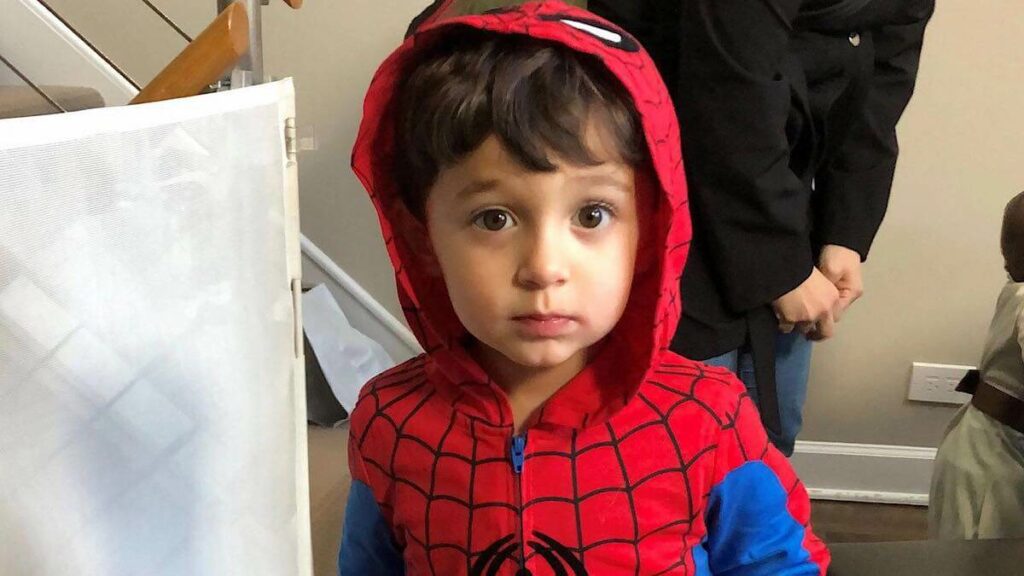
I’ve heard some autism parents say they had to let go of the fantasy of a normal life with a normal child in order to free themselves and accept reality.
For me, it was learning to take life in 3-month increments. Whether it was planning out Rhys’s therapy schedule or deciding whether he could handle a trip to Disney, if it was more than three months away, I had no business giving it space in my head or my heart. I’m not ready to let go of hope that Rhys’s life will be so much more than “quality.”
Shortly after Rhys’s diagnosis, Imran and I organized a team to participate in a community walk for autism. I needed a project to replace my feeling of helplessness, and the walk was a good way for us to start sharing his diagnosis with family and friends, and process what this all meant for us.
But after the walk I quickly realized that I don’t like talking about autism. I expend a lot of time and energy working with therapists, scheduling appointments, relaying our weekly “homework” to my husband and Rhys’s caretakers.
There wasn’t much left in the gas tank for fundraising or participating online and I didn’t want our lives to center around Rhys’s autism.
Turns out, having a child with autism is not a life sentence. It’s a privilege.
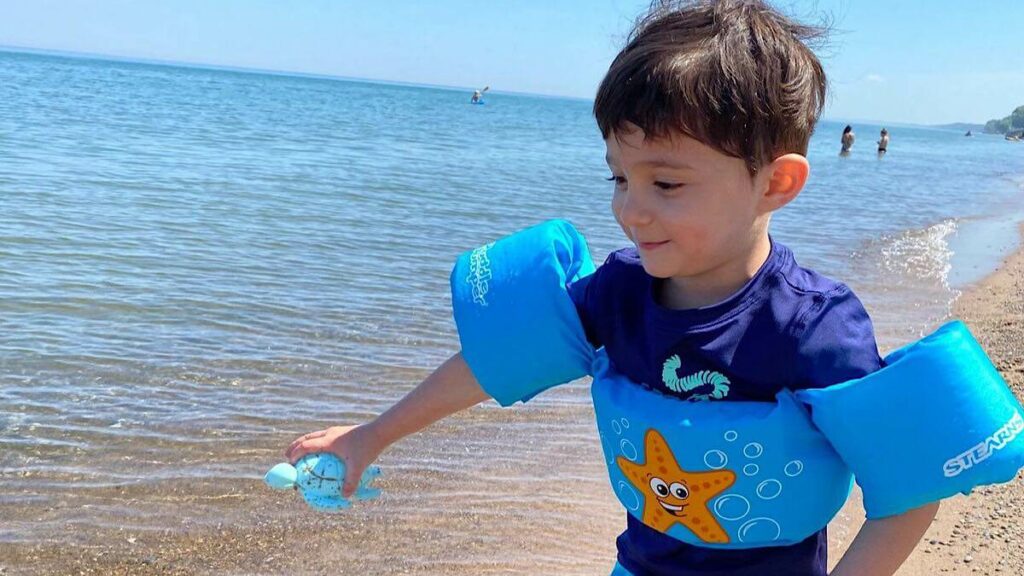
It’s been a year and a half since Rhys’s diagnosis, and make no mistake, we struggle daily with his rigid eating habits, his compulsive wardrobe changes, and his burning desire to take eight baths a day.
He rarely makes eye contact with strangers, he’s in constant motion unless he’s standing on his head, and we’ve been potty training for nearly a year.
But the first time he leaned in for a kiss and allowed my lips to touch his, I melted into a puddle of mom goo.
For every moment I’m suffocating under the pressure of making decisions that could change the course of his life, I’m beaming with pride, kissing boo-boos, and celebrating milestones.
My boys have me riding the same emotional roller coaster any parent rides. The one that makes you count the hours until bedtime, only to miss them by morning.
I won’t pretend we don’t have a tough journey ahead as Rhys transitions from toddler to kid. But for the time being, I’ll just enjoy being the mom of a wonderful kid who happens to have autism.
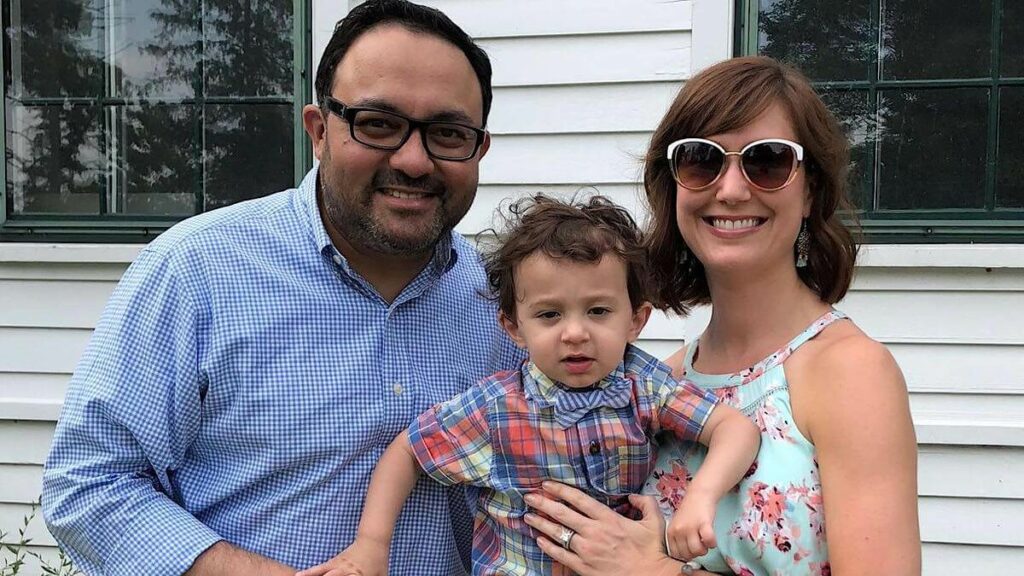
Written by, Kate Rahman
Hi there! I’m Kate Rahman, a lifelong storyteller, fueled by coffee, survived by wine. I’m a hot mess collection of clichés: busy working mom, loves stilettos but lives in yoga pants, eats chocolate in the pantry, cries in the shower. All the good ones…My husband, Imran and I are raising the sweetest little hoodlums: Aidan is five and neurotypical; Rhys is three and on the spectrum. I document my personal stories of resilience, grief, parenthood, and self-deprecation on my blog Just pour.
Interested in writing for Finding Cooper’s Voice? LEARN MORE
Finding Cooper’s Voice is a safe, humorous, caring and honest place where you can celebrate the unique challenges of parenting a special needs child. Because you’re never alone in the struggles you face. And once you find your people, your allies, your village….all the challenges and struggles will seem just a little bit easier. Welcome to our journey. You can also follow us on Facebook, subscribe for exclusive videos, and subscribe to our newsletter.

